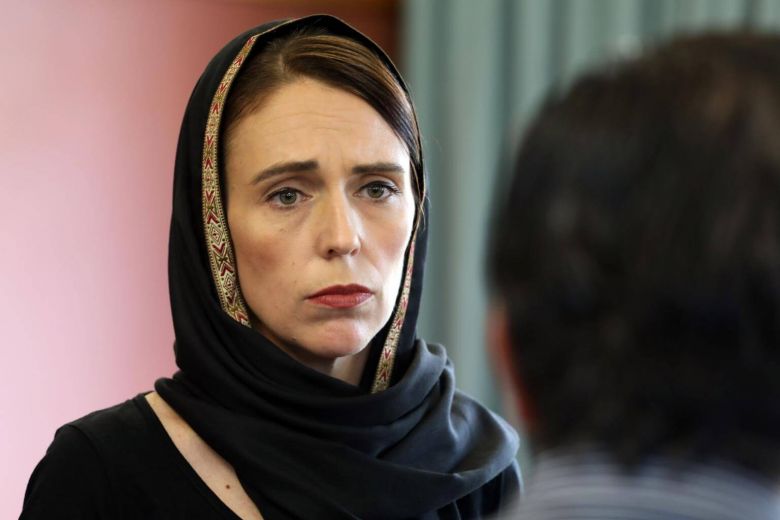I didn’t realise until last week, that March has been ‘Women in History’ month and it got me thinking about the women who are in positions of leadership today, and what their impact on the world will be for generations to come.
As many people will know, my husband is a proud New Zealander, and my family and I have an incredibly strong love for the country; its landscape, it’s culture, but most importantly – the people. That’s why on the 15th March, when I heard of a mass terrorist shooting having taken place in two mosques in Christchurch, my heart absolutely broke for them. This is not New Zealand.
My first thought ran to the poor families. Nobody expects their families to go to pray and not come back. What a loss.
If I felt it profoundly some eleven thousand miles away, I could only imagine the sheer numbness, shock and grief our families were experiencing over there.
What was required was intervention. A real leader who could empathise with those also in shock because she, too, was in shock. Arose Jacinda Ardern, prime minister of New Zealand, whose emotional expression showed her courage and vulnerability to her people. She showed that she understood the grief because she felt it too. Quickly praised for her response to the situation, what really inspired me from afar, was her ability to take control of the situation as a vulnerable woman, not a scripted and robotic politician.
We talk often of ‘emotional expression’ in emotional intelligence. Simply put, emotional expression includes both facial expressions and body movements that accompany the internal experience of emotion and that clearly serve to communicate that emotion to others. Influenced by the work of Charles Darwin, psychologists have long regarded the communication of emotion as an important function with survival value for the species
Dr Brene Brown talks of the ‘authentic self’ which is absolutely key in building trust with those around you.
Jacinda didn’t need to talk of deploying military style tactics to keep the country safe, she didn’t talk of building walls to keep people out. She didn’t talk of hate. She bit back when Donald Trump talked of ‘sending assistance’. New Zealand needed love. It didn’t need money thrown at it.
Instead, her message was one of solidarity and she was utterly authentic in her emotion. Focused entirely on the victims, the plight of their families and of the need to take immediate action to prevent such a tragedy from ever occurring again. Robust, natural, empathetic leadership.

A few things really stood out for me in her response:
- Emotional expression in her first tv interview. Her reaction is one of visible shock and anguish. Very relatable, provoking sympathy for the victims and a feeling of true understanding.
- She assumed accountability and took on the problem personally as though she was dealing with a personal tragedy.
- Engaged with the victims and their families. Showed an authentic understanding and compassion for their cultural and religious beliefs.
- Response was not autocratic, hateful or militant rather, awe inspiring love for the families and for the country.
- Tactful but resourceful; calling on all parties to get back to parliament immediately to change the law.
It must be incredibly difficult to lead when you are not able to connect or relate to a situation emotionally. Take BP for example. In the EQ Edge book, there’s an example of a spokesman for the BP CEO responding to an oil spill incident where eleven people died. Of course, the CEO took full responsibility for the tragedy, but his actions simply did not match his words. He talked of ‘little mistakes’, he shouted at a camera man and responded by saying “I’d like my life back”. Can you imagine the leader of a nation responding to a mass shooting in this manner? True, this is likely to have been the CEO’s ‘authentic self’, but probably not a leader people would respect.
On the opposite site of that, there is the example of the CEO of Johnston and Johnston and his reaction to the 1982 Tylenol poisoning tragedy, resulting in seven deaths. In his tv interview, he was visibly upset. It had clearly affected him emotionally. His message, and the delivery of it, were entirely authentic. He took personal responsibility and swift action to ensure that a similar incident wouldn’t ever occur again. The public could see that he was a good guy.
Lead from the heart. Show people that you’re human. Show them that you have emotions. Being a trusted leader means showing people your vulnerabilities, however uncomfortable. It is a strength to have the courage to show your vulnerabilities, not a weakness. Good leaders wear enough of their hearts on their sleeves to strike a good balance of emotion with confidence to inspire real and meaningful action.
As Dr Brown would say, “be honest and let ourselves be seen. Let ourselves be vulnerably seen”.
